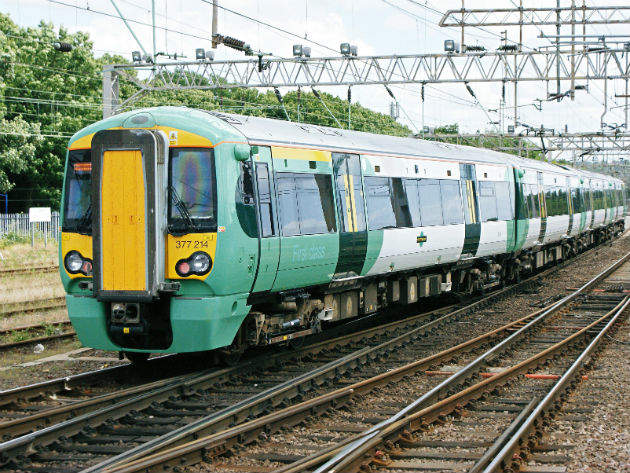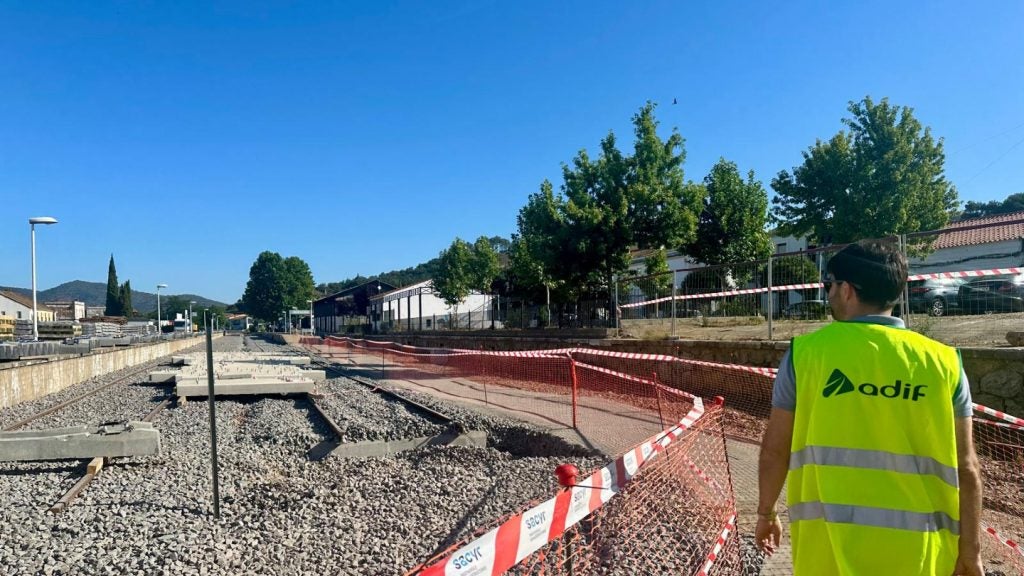

For Transport Secretary Chris Grayling, Delay Repay 15 represents a “major improvement for passengers”, while others have spoken of rebuilding the trust between the paying punter and the franchises that operate the railways – something that has wilted in the heat of overcrowded trains, rising fares and strike action.
The scheme – announced in October – will mean passengers can claim compensation for delays of more than 15 minutes, whereas previously it had to be at least 30 minutes. The thresholds will pay back 25% of the cost of the single fare for delays between 15 and 29 minutes, rising to 50% for delays of 30 to 59 minutes, and then 100% for delays of 60 minutes to 119 minutes.
Delay Repay 15 will start on Govia Thameslink Railway (GTR) services, including Southern, whose passengers have suffered months of disruption and cancellations due to strikes, before being rolled out across the country, says the Department for Transport (DfT). However, at the time of writing, no firm date had been given; rather the DfT ambiguously states it will happen “within months”.
At the end of the 2015/16 financial year, all but four franchises had adopted the overall Delay Repay scheme, and the others will make the transition as they are refranchised, according to a DfT spokesperson.
The spokesperson also confirmed that “Delay Repay pays compensation for eligible delays whatever the cause”, and has been widely welcomed by passengers, who, according to data from the Office of Rail and Road (ORR), had to contend with 47 million delayed or cancelled journeys in 2015.
How well do you really know your competitors?
Access the most comprehensive Company Profiles on the market, powered by GlobalData. Save hours of research. Gain competitive edge.

Thank you!
Your download email will arrive shortly
Not ready to buy yet? Download a free sample
We are confident about the unique quality of our Company Profiles. However, we want you to make the most beneficial decision for your business, so we offer a free sample that you can download by submitting the below form
By GlobalDataBut, will it have any noticeable impact?
Why Delay Repay 15?
Last year, the consumer rights group Which? filed a so-called super complaint to the ORR, arguing that only one third of people who may have been entitled to compensation actually claimed it. The ORR’s own research also shows that around 80% don’t claim. “We will be reporting on the progress train operators have made to raise passengers’ awareness and to improve the claims process,” said ORR director John Larkinson in a statement.
It could be argued that lowering the time threshold to 15 minutes is the government’s attempt at putting a lid on rising frustrations. “I'm sure it's not very scientific,” says Tony Travers, director of research group LSE London at the London School of Economics. “It's an attempt to convince passengers that the government is on their side and to come up with a number that makes sense.”
Travers adds that the current guidelines apply much more to long distance trains, rather than local or suburban commuter trains, so 15 minutes is going to make it “far more likely that people enjoying the delights of commuter rail services get a chance to claim”. He continues: “Your average commuter has enough of a stake in the railway to feel that they would be willing to make a bit of effort to get their money back.”
Paul Payne, managing director and co-founder of One Way, a specialist rail and construction recruiter, feels that the tipping point has been reached, but warns the “current rate of delays” could ultimately end up costing rail providers millions of pounds in compensation.
So, how do the train operating companies (TOCs) feel about it? Well, they are supportive – at least in public. “Everyone in the railway industry wants trains to run on time and when things go wrong we want to put them right,” said Paul Plummer, chief executive of the Rail Delivery Group (RDG), which represents TOCs, in a statement.
“We know that every minute counts for passengers and we understand the argument for wanting to start the compensation clock ticking earlier, especially for commuter services. The rail industry is always ready to work with government on plans which benefit passengers.”
And yes, there has been improvement on this front. DfT figures show that from 2015 to 2016, nearly £45m was paid out in compensation. Similarly, the number of eligible passengers claiming compensation has almost trebled over the past three years, from 12% in 2013 to 35% this year, according to research by Transport Focus.
Making repayments automatic
However, not everyone is happy with the pace of change. Lianna Etkind is a campaigner at the Campaign for Better Transport group. She argues that delaying the introduction of Delay Repay 15 is just not good enough. “We feel that passengers deserve better, really,” she says. “It's a step in the right direction, but we'd like the government to go further and clarify when this will actually happen.”
Even more than that, Etkind wants to see the 15 minute window lowered even further; “it doesn't go far enough”. But, is that idea feasible?
“It's not only possible but it is happening in some places,” she says, referencing c2c, which runs services between Fenchurch Street, London, and Southend, and now automatically refunds passengers for delays of more than two minutes. Note, though, that this is paid into a customer’s c2c online account and requires a c2c smartcard. The operator pays 3p back for every minute delayed, up to a delay of 29 minutes. It then pays back 50% of the cost of a single journey for a 30 to 59 minute disruption.
Christian Wolmar, rail journalist and author, is doubtful. “I think 15 minutes is probably the lowest cut off you could have,” he says. “It seems to be the right balance. That's one of the things with franchising; you always have to balance this sort of thing, and it's always more complicated than you hope.”
Before any attempt to lower the time window on Delay Repay 15, the process of actually reclaiming needs to be easier. On this point, there is agreement across the board, with people bemoaning the use of paper forms.
As mentioned, c2c is pushing on with its automatic repay, and Virgin Trains has its own scheme on the West Coast Mainline, for those who have booked an advance ticket through virgintrains.com or the app. Money is repaid directly back onto the bank card used for the purchase. Abellio Greater Anglia has also announced plans to introduce automatic repayments.
The DfT’s response to the Which? super complaint includes a commitment to make the process easier and more convenient, while the RDG is spearheading a nationwide campaign to boost awareness of how passengers can claim.
“Filling in forms, working out timings, you can understand why that deters people,” says Etkind. But, it’s not all about online, she adds. “We'd like to see it that when there is a delay and people are entitled to claim, there's an announcement over the tannoy and staff handing out leaflets regarding delay repay. We need to make it more accessible in offline versions, too.”
Comparing compensation rules
Despite the faults in the system, the UK does actually compare rather favourably to other European countries. It’s important to note that Delay Repay 15 applies to English TOCs, including those that serve destinations in Wales and Scotland. The Welsh Government is, however, looking at a new compensation deal for its franchises, and ScotRail currently has its own delay repay scheme, paying out for delays of over 30 minutes.
In the Republic of Ireland, Irish Rail gives 50% of the value of the single journey in vouchers or 25% in cash for delays of 60 to 120 minutes, rising to 100% of the value of the single journey in vouchers or 50% in cash for anything over 120 minutes.
Nederlandse Spoorwegen (NS), in the Netherlands, refunds passengers if they arrive at their final destination with a delay of 30 minutes or more, while Italy’s Trenitalia will give a voucher equal to 25% of the ticket price for delays between 30 and 59 minutes.
Those travelling in Germany on a Deutsche Bahn (DB) service get 25% of their fare refunded if the train arrives at their destination station 60 minutes late or more, and 50% for delays of 120 minutes plus. Compensation also applies on DB’s international routes. In addition, the TGV France – Switzerland high speed line reimburses passengers if the train is at least 30 minutes late arriving at its destination on a TGV Lyria journey of at least 100 km.
The DfT model isn’t perfect, but there’s no doubt the new rules mark a welcome step change for campaigners and passengers alike.







